Information is Treachery
Is anyone truly opposed to censorship?
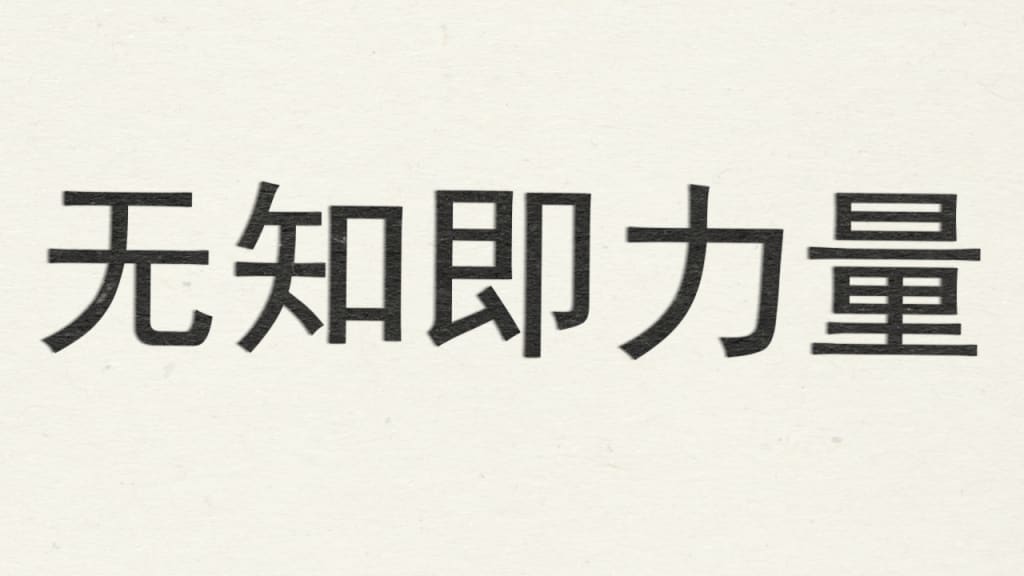
A computer can not read - that's simply not one of its gifts. It can't see a picture, either, or listen to a song or watch a film. What a computer sees - insofar as it can be said to "see" anything - is an endless world of switches, some on, some off. Yet within those switches are patterns, some of which correspond to stories, pictures, songs or films. At command, a computer can take those switches and perfectly recreate these things, telling stories it hasn't the means to understand.
But that's merely one function. Find the right switches and turn them a different way, and that same computer will still find those stories - but this time it will annihilate them. Portraits and melodies and cinema and books, all bent beyond recognition as surely as if a torch had been put to them. And the computer will do this endlessly, innocently, unhindered by doubt or guilt or other weaknesses of the human mind.
It's what we've feared all along. Or is it what we've always wanted?
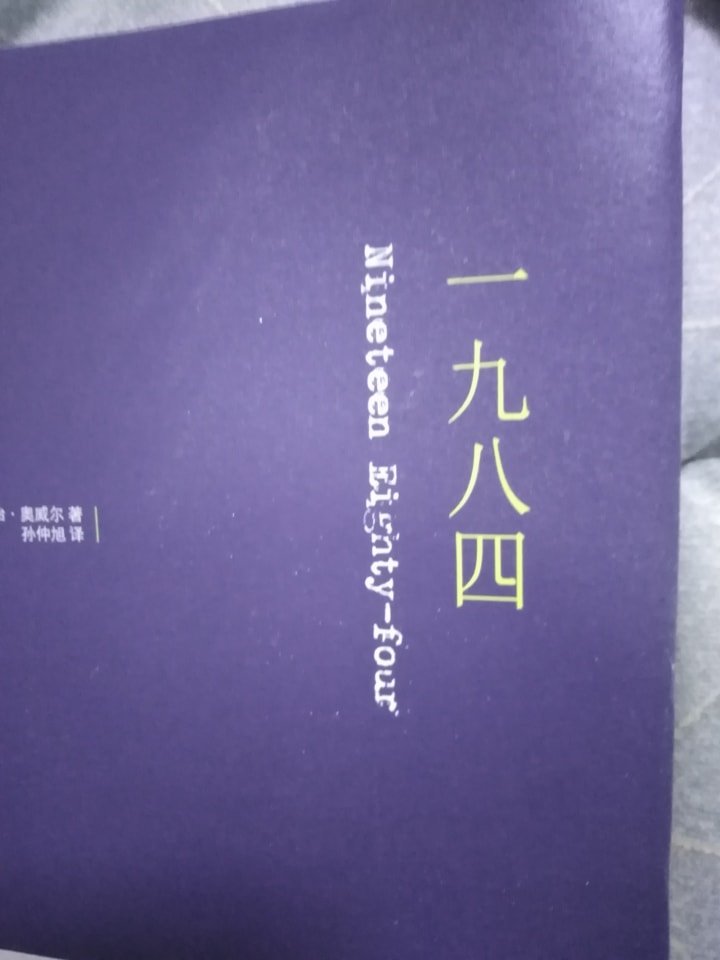
The text in the image above is a translation of Ingsoc's third slogan from George Orwell's 1984 - Ignorance is Strength.
Orwell gets a lot of well-deserved credit for foresight, but there is one aspect of the book that seems almost quaint, and that is the operation of the Ministry of Truth. This is a building full of human censors, redacting the news with their own hands to keep the media narrative in line with party doctrine. Machines serve some role here, in the destruction on inconvenient materials, but the work of shaping the news is still done by people - for who else would do it?
Of course, computers were a different beast in Orwell's day. They were machines that filled entire rooms, operated by teams of technicians feeding them instructions on carefully arranged stacks of physical media. They were powerful, but they were limited, and everyone knew their limits. True, it was easy to imagine computers becoming more powerful and more centrally important. Those with more nuanced foresight could also imagine them getting smaller, cheaper, and easier to use. Even so, how could a computer be a censor? It can't read.
And yet here we are, one step closer.
A research team in China claims to have developed a text censor that can filter “harmful information” on the internet with unprecedented accuracy using artificial intelligence .
Traditional machine censors rely mainly on keywords to do this and struggle to achieve 70 per cent accuracy, while AI technology – which needs to be trained by humans – has taken that to about 80 per cent in recent years.
The team from Shenyang Ligong University and the Chinese Academy of Sciences say their AI technology does not need to be trained by humans and “outperforms other approaches” to achieve more than 91 per cent accuracy.
It would be particularly useful to “identify and filter sensitive information from online news media”, lead researcher Li Shu and her colleagues wrote in a paper published in the Journal of Chinese Computer Systems on Monday.
And just a reminder that anyone who controls information can become its master as well:
Part of the team’s text censor technology came from Google, Li said. In 2017, Google developed an open-source language model known as bidirectional encoder representations from transformers, or BERT, to help its search engine better understand users’ search terms. BERT can read a word in different contexts – such as “running a business” versus “running a marathon” – as a result of reading huge text databases including the entire Wikipedia site.
But BERT is not a censor by design and cannot understand text longer than 512 words. To make it work, Li’s machine breaks a long text into segments, lets BERT read the shorter parts and uses another AI tool to combine the results and assess them using the most up-to-date dictionary.
Google did not respond to a request for comment.
Of course they didn't respond. Maybe we shouldn't be so judgmental, though. They swear that this wasn't meant to be a tool of censorship - and if one can't trust Google, then who is trustworthy?
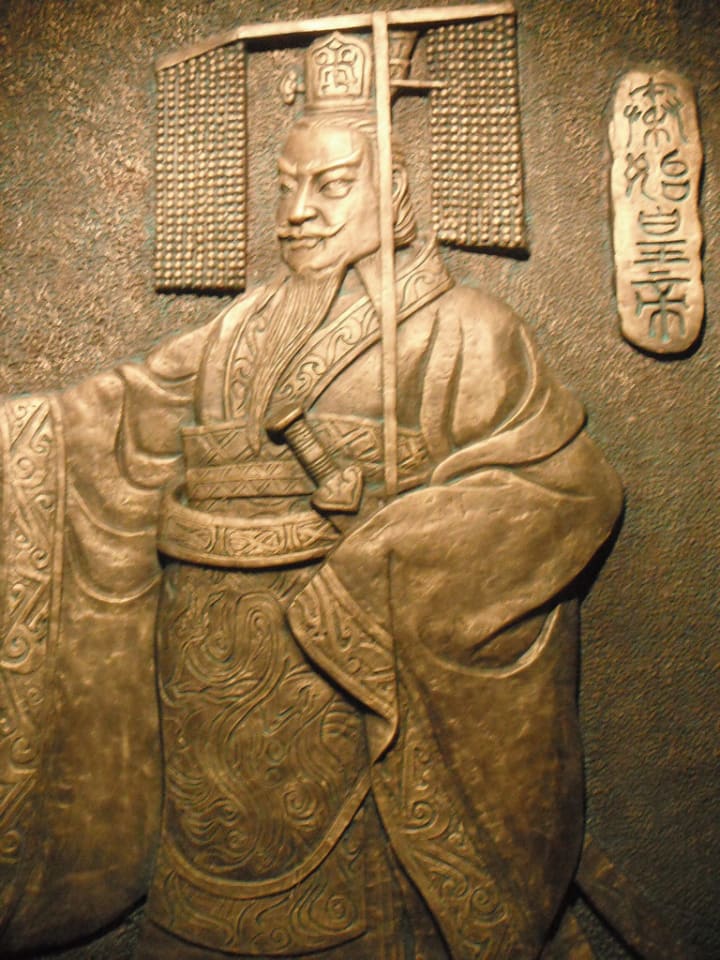
Censorship is not a new phenomenon in China, and one might even call it foundational. Each regime that claimed the Mandate of Heaven sought to cast its founders as noble heroes defeating a corrupt and fallen state; fire was a useful tool to blot out anything that might run contrary to the new narrative. The first to do this was the First Emperor, Qin Shi Huang, and his campaign of censorship was not merely one of the world's first but one of the world's most successful.
The story, as relayed by legendary historian Sima Qian, is thus: Having overthrown the squabbling feudal rulers of the Zhou Dynasty, Emperor Qin was poised to create a brand new world guided by his own philosophy. Beyond merely breaking the old state, this would entail ridding the new state of old beliefs - of histories that glorified the feudal state and doctrines that ran contrary to the new code of laws. The libraries were soon emptied, and anything seen as dangerous put to the torch.
But it was here that Emperor Qin surpassed his descendants, because he didn't stop at mere books. There were scholars in the land, learned men who were experts in these dangerous doctrines. To the new state, it was as much an act of treachery to possess this forbidden knowledge as it was to possess a forbidden book. These scholars had to be destroyed too - and they were, by the hundreds.
Thus began the Burning of Books and the Burying of Scholars, one of the world's most thorough campaigns against information. We'll likely never know just how much was lost to the torch and the sword during those years. Emperor Qin didn't quite succeed in his campaign - the collection of philosophies that would come to be known as "Confucianism" survived, if barely - but what is lost, is lost forever.
There are various stories to explain how the Confucian doctrines survived. I was always told that some of these books were secreted away by the very soldiers sent to destroy them. These men were more loyal to their beliefs and culture than to their Emperor.
Of course, disloyalty is another aptitude that a computer can't have.
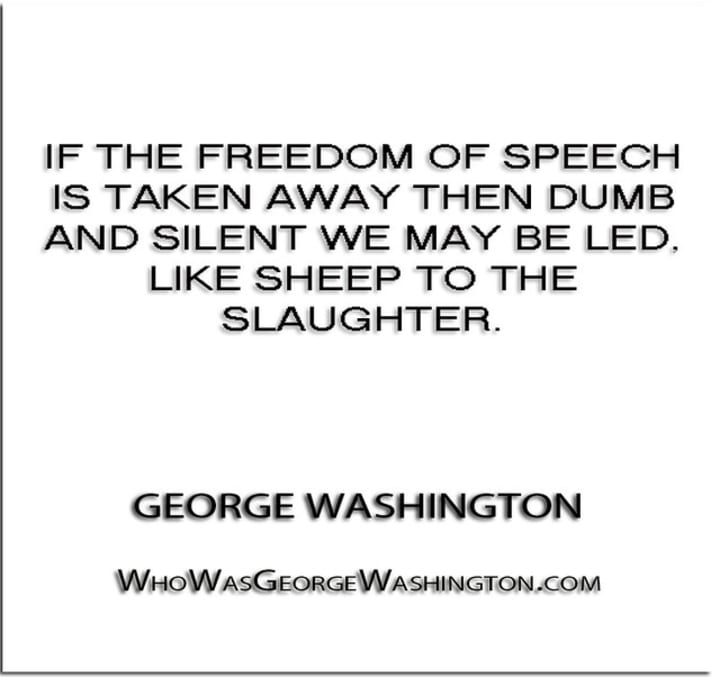
You'll have to excuse the rhetoric, but this is a personal issue for me. After all, I am one of those free speech absolutists you used to hear so much about.
That was the term of art twenty years ago, back when I lived in the middle of nowhere and we had much simpler means to interrogate treacherous notions. A beating - or at least the threat of one - was a sound method for shut down that kind of twisted speech, and it required a bare minimum of technical skill.
This would be my first experience with those who fear ideas and what they do to allay that fear. It was a period of unity (to use the soft-lit language of the "centrist" conservative), one where there was an inherent suspicion of dissent. Did everyone really agree, or were those in the minority simply cowed into silence? Most likely I'll never know. I'd like to think that some of us kept our sanity.
The term "free speech absolutist" was used mainly as an insult, with a lot of invisible weight attached. By insinuation, a free speech absolutist was someone who put high-minded ideals and abstractions like "civil rights" above actual human lives. They were those radicals who looked at the Constitution and saw only a national suicide pact, and if we weren't careful, they'd get us all killed as well. And accompanying this line of thought was a special form of bad faith argument, one that ended up outlasting that particular age of terror.
I imagine that it was easy to pass judgment on China when you read the first few parts, to decide that this is more politically motivated tyranny - a judgment that comes easily to Americans, and to Westerners more generally. Yet the truth of censorship in the PRC is far more complex than that. Much of the censorship here is aimed at shutting down social ills that few would see as positives by strangling media that would promote such things. This can include criminality (especially organized crime and corruption), superstition, and anything that might cause distrust between groups.
Does this change your opinion at all? Shouldn't it? I mean, you're not in favor of crime, are you? Surely you don't want children to join the mob? You don't want police officers and judges taking bribes do you? Of course you don't - so I can't imagine you'd support information that would promote such wickedness.
It's a crude tactic, but effective propaganda often is. Even as I write this, I can think of plenty of TV shows and movies that carry message I don't like - that present torture as legitimate, that valorize violent police officers and vigilantes, that present sociopathic grifters as heroes. There are shows out there that turn my stomach, and I'd rather they didn't exist at all. In many cases, I imagine that government here would agree.
So why does the prospect of banning them trouble me so much?
I can trace it back to high school, those grim years when thinking the wrong thoughts was the highest form of treason there was. Because you don't want our soldiers to die, do you? Surely you don't want more terrorism, more dead innocents? Of course you don't - so I can't imagine you'd support people who promote such unpatriotic ideas.
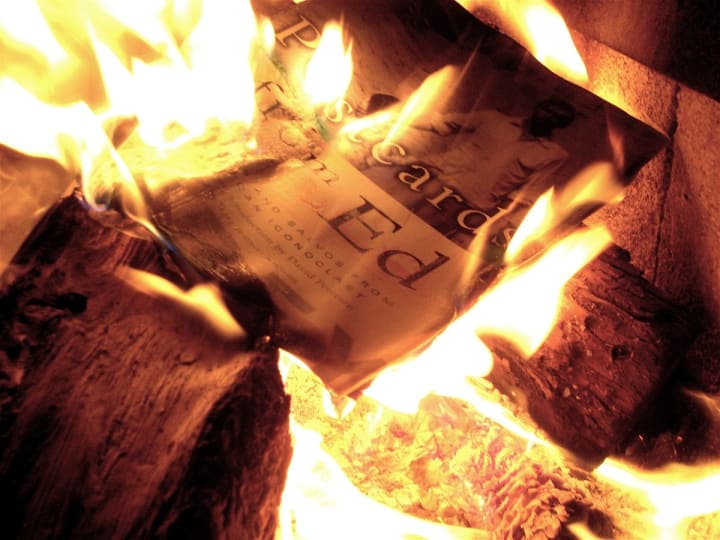
Books have burned in the West just as surely as they have in China, and dissidents have been jailed all the same, yet we sneer at cutting-edge censorship like what's described above for a simple reason - it clashes with our essential values. The roots of our culture lie in discourse rather than obedience, in dynamism rather than order. We celebrate the dissidents and the oddballs, to the point where we built a nation around their ideals. Freedom of expression is very much the engine of our society.
Yet there is very little that's natural about freedom of expression. Much like rationalism, egalitarianism, pure reason and all those other high-minded ideals and abstractions of the Enlightenment, it runs contrary to our primitive nature. Fear is easy because fear is innate, and once we've come to fear someone it's a logical step to fear all that they are, right down to their thoughts.
We put all our anxiety in technology because it's easy to be troubled by things that are new, but the real problem is something that's as old as it gets. Computers cannot be censors because they have no judgment and, indeed, no will. They are servants like any other machine, and the evil done by the servant is always at the direction of the master. A computer gives one the means to annihilate information, but so does an open flame. It is the hand that wields the torch - or directs the algorithm - that is the real problem.
As far as censorship is concerned, it isn't technology that worries me - it's culture. The First Emperor failed, but the Last Emperor will succeed - not because of better tools, but because people will agree with his edicts.
For the time being, though, I find myself living under a present regime that already restricts access to information, and reminders of this can be far more petty than you might assume.
A few months back, I was uploading a trailer for A Crisis of Harmony, my documentary short, to a Chinese video host - the better for the locals, such as those featured in said doc, to see it. Chinese hosts aren't automatic - every video must be approved. I hadn't anticipated any problems as they had cleared a previous trailer.
This trailer, on the other hand, was rejected. Given that it lacks any sensitive content, I was at a real loss as to why, until something occurred to me: No subtitles. Videos in non-Chinese languages on Chinese hosts always have Chinese subtitles. This one didn't, so they had no way to check it.
There's no valiant tale here, no underdog struggle to get the truth through the steel fingers of tyranny. As it always is in real life, the actual stories are more aggravating than anything.
Anyway, this will never be a problem for us. After all, we have computers checking all of these things - and everyone knows that computers are fair, right?
About the Creator
Andrew Johnston
Educator, writer and documentarian based out of central China. Catch the full story at www.findthefabulist.com.

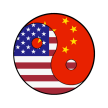




Comments
There are no comments for this story
Be the first to respond and start the conversation.